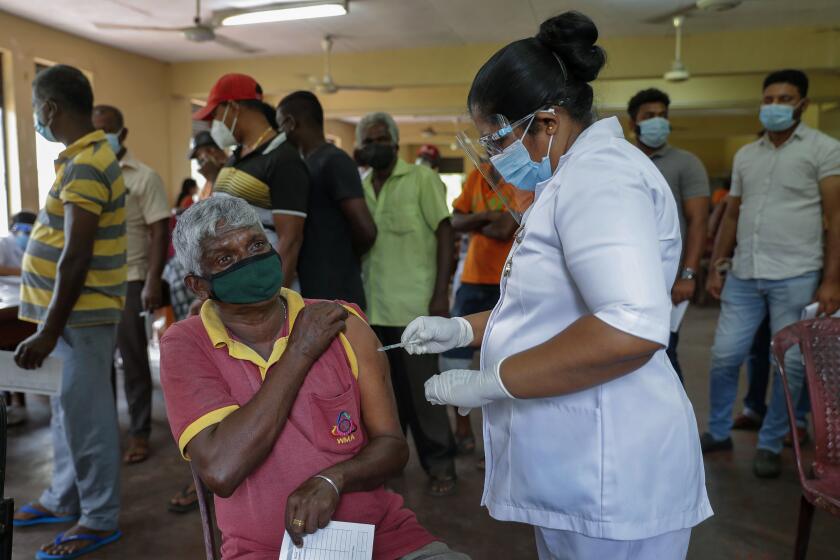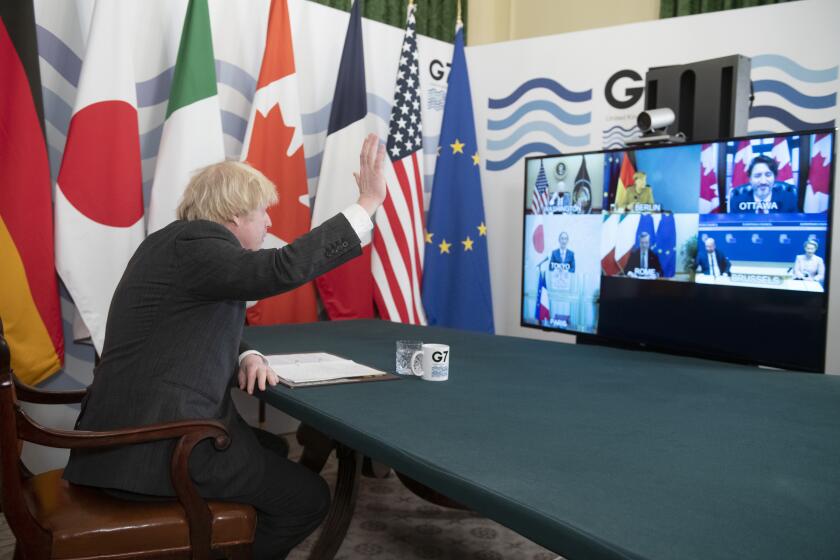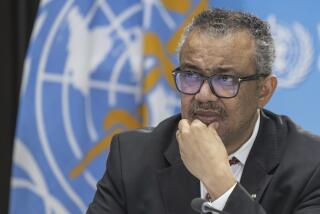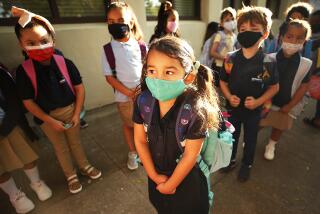It’s ‘premature’ and ‘unrealistic’ to think COVID-19 will end soon, WHO warns
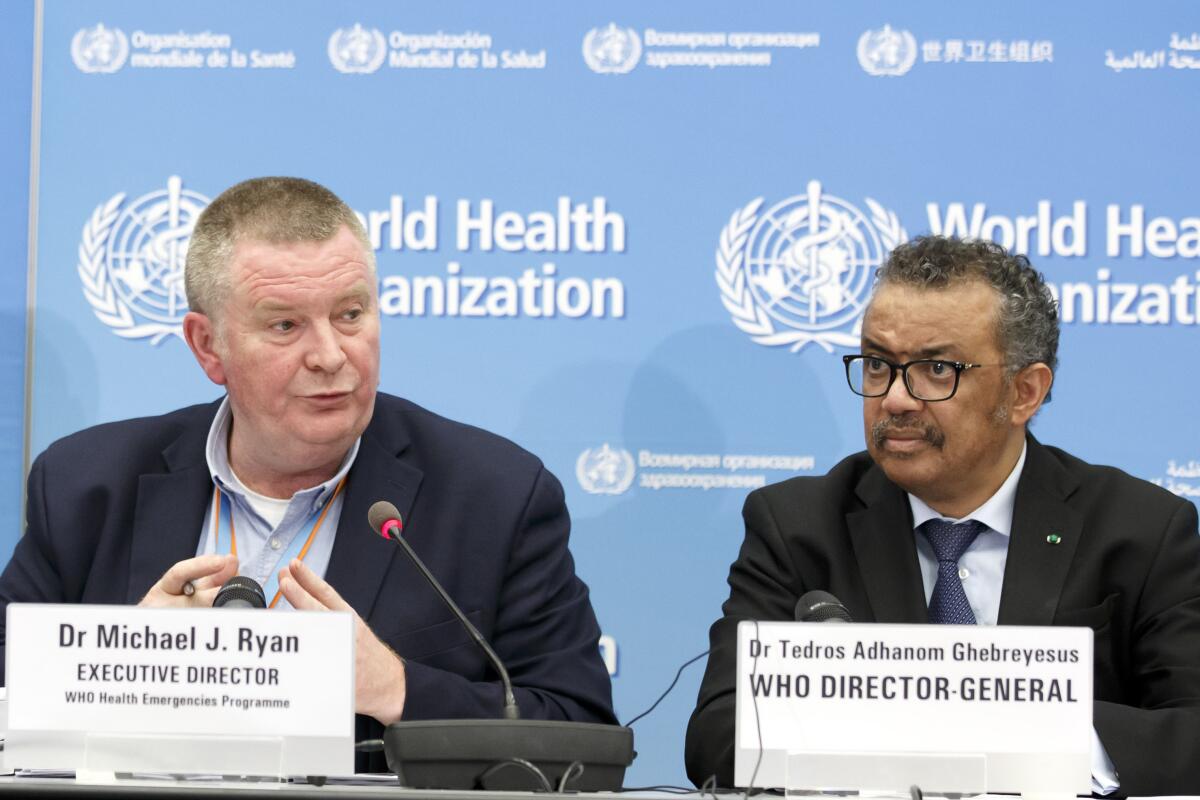
- Share via
GENEVA — A senior World Health Organization official said Monday it was “premature” and “unrealistic” to think the COVID-19 pandemic will be over by the end of the year, but that the recent arrival of effective vaccines could at least help dramatically reduce hospitalizations and death.
The world’s singular focus right now should be on efforts to keep coronavirus transmission as low as possible, said Dr. Michael Ryan, director of WHO’s emergencies program.
“If we’re smart, we can finish with the hospitalizations and the deaths and the tragedy associated with this pandemic” by the end of the year, he said at a media briefing.
Ryan said WHO was reassured by emerging data that many of the licensed vaccines appear to be making a difference in curbing the virus’ explosive spread.
“If the vaccines begin to impact not only on death and not only on hospitalization, but have a significant impact on transmission dynamics and transmission risk, then I believe we will accelerate toward controlling this pandemic.”
But Ryan warned against complacency, saying that nothing was guaranteed in an evolving epidemic.
“Right now the virus is very much in control,” he said.
WHO’s director-general, meanwhile, said it was “regrettable” that younger and healthier adults in some rich countries are being vaccinated against the coronavirus before at-risk health workers in developing countries.
President Biden is racing to get more Americans inoculated faster, but the lagging vaccination effort globally could allow deadly new variants to spread.
Tedros Adhanom Ghebreyesus said immunizations provided by the U.N.-backed effort COVAX began this week in Ghana and the Ivory Coast, but lamented that this was happening three months after countries such as Britain, the U.S. and Canada began vaccinating their own populations.
“Countries are not in a race with each other,” he said. “This is a common race against the virus. We are not asking countries to put their own people at risk. We are asking all countries to be part of a global effort to suppress the virus everywhere.”
However, WHO stopped short of criticizing countries that are moving to vaccinate younger and healthier populations instead of donating their doses to countries that haven’t yet been able to protect their most vulnerable people.
“We can’t tell individual countries what to do,” said Dr. Bruce Aylward, a senior WHO advisor.
While fighting the pandemic at home, President Biden joined top allies Friday for a virtual conference on cooperating to fix a patchy global vaccination effort.
Tedros also noted that for the first time in seven weeks, the number of COVID-19 cases increased last week. He described the increase as “disappointing,” but said it wasn’t surprising.
Tedros said WHO was working to better understand why cases increased, but that part of the increase appeared to be due to the “relaxing of public health measures.”
Associated Press medical writer Maria Cheng reported from London.
